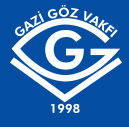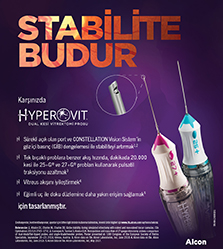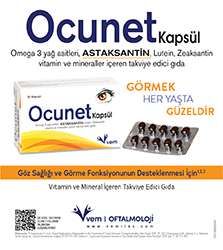2M.D. Professor, Dicle University, Faculty of Medicine, Department of Ophthalmology, Diyarbakır/TURKEY Purpose: To evaluate effectiveness of intravitreal bevacizumab injection (IVBI) in patients has with macular edema (ME) due to central retinal vein occlusion (CRVO).
Materials and Methods: Between January 2007- May 2012 the patients who treated with IVBI due to ME secondary to CRVO was rewieved retrospectively. Patients demographic characteristics,medical history, complete ophthalmologic examination including visual acuity(VA) before and after IVBI, optical coherence tomography and central macular thickness (CMT), fundus angiography, retinal ischemia were recorded. VA measurements were converted to LogMAR. CRVO was divided into 2 groups as ischemic and nonischemic.
Results: 22 (16 male, 6 female) eyes of 22 patients were included. The age of the patients was 60.9±10.5 (39-80) years. Five of the patients were ischemic and 17 of them were nonischemic. The age of ischemic and nonischemic group was 64.6±9.5, 60.4±11 years, respectively (p>0.05). IVBI was applied 3.2±0.8 times in ischemic group and 2.0±1.1 times in nonischemic group. The follow up time was 3.7±2 months (1-6 months). All patients' baseline, 1, 3, 6. month VA were 1.28±0.71, 0.92±0.55, 0.93±0.35 and 0.70±0.49 LogMAR respectively. Although not significant, final VA was increased according to first VA. The CMT measurement of patients was 630±169 μm in baseline,in 1. month it was 395±152 μm,at 3.month they were 465±243 μm,at 6. month they were 395±98 μm level and there was statistically significant decrease according to the baseline record, 1, 3 and 6. month.
Conclusion: Although IVBI is an effective treatment for ME due to CRVO there was an increase in VA in short term, the main limitations are being effective in short term and needing repeated injections.
Keywords :



